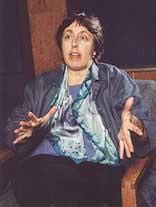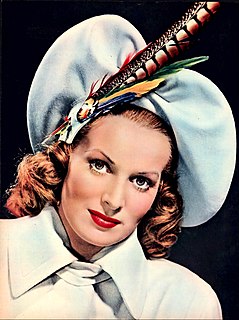A Quote by Judith Lewis Herman
Many abused children cling to the hope that growing up will bring escape and freedom. But the personality formed in an environment of coercive control is not well adapted to adult life. The survivor is left with fundamental problems in basic trust, autonomy, and initiative. She approaches the tasks of early adulthood-establishing independence and intimacy-burdened by major impairments in self-care, in cognition and memory, in identity, and in the capacity to form stable relationships. She is still a prisoner of her childhood; attempting to create a new life, she reencounters the trauma.
Quote Topics
Abused Children
Adapted
Adult
Adult Life
Adulthood
Approaches
Attempting
Autonomy
Basic
Bring
Capacity
Care
Childhood
Children
Cling
Cognition
Control
Create
Early
Environment
Escape
Establishing
Form
Formed
Freedom
Fundamental
Growing
Growing Up
Her
Hope
Identity
Independence
Initiative
Intimacy
Left
Life
Major
Many
Memory
New
New Life
Personality
Prisoner
Problems
Relationships
Self
She
Stable
Still
Survivor
Tasks
Trauma
Trust
Up
Well
Will
Related Quotes
She [a mother] never outgrows the burden of love, and to the end she carries the weight of hope for those she bore. Oddly, very oddly, she is forever surprised and even faintly wronged that her sons and daughters are just people, for many mothers hope and half expect that their new-born child will make the world better, will somehow be a redeemer. Perhaps they are right, and they can believe that the rare quality they glimpsed in the child is active in the burdened adult.
In her heart she is a mourner for those who have not survived. In her soul she is a warrior for those who are now as she was then. In her life she is both celebrant and proof of women's capacity and will to survive, to become, to act, to change self and society. And each year she is stronger and there are more of her.
Though at this moment she felt abused, abandoned, and ashamed of herself, Madeleine knew that she was still young, that she had her whole life ahead of her--a life in which, if she persevered, she might do something special--and that part of persevering meant getting past moments just like this one, when people made you feel small, unlovable, and took away your confidence.
[Keeping kosher was] the symbol of an initiation, like the insignia of a secret brotherhood, that set her apart and gave her freedom and dignity. Every law whose yoke she accepted willingly seemed to add to her freedom: she herself had chosen . . . To enter that brotherhood. Her Judaism was no longer a stigma, a meaningless accident of birth from which she could escape . . . It had become a distinction, the essence of her self-hood, what she was, what she wanted to be, not merely what she happened to be.
Being an Irishwoman means many things to me. An Irishwoman is strong and feisty. She has guts and stands up for what she believes in. She believes she is the best at whatever she does and proceeds through life with that knowledge. She can face any hazard that life throws her way and stay with it until she wins. She is loyal to her kinsmen and accepting of others. She's not above a sock in the jaw if you have it coming.
...she needed to confirm its presence. Like the keeper of the lighthouse and the prisoner, she regarded it as a mooring, a checkpoint, some stable visual object that assured her that the world was still there; that this was like and not a dream. That she was alive somewhere, inside, which she acknowledged to be true only because a thing she knew intimately was out there, outside of herself.
The new female is competent in all that she chooses. She chooses whatever her heart tells her. She can create a business, lead a country, drive a truck, hammer nails, deliver mail, or raise a family. She is at home in every social and physical environment. She can be a housewife, if she chooses. She can be anything else, too. She is intuitive and heart centered. She is all that a female has been, and more.
The appeal of the cat lies in the very fact that she has formed no close bond with [man], that she has the uncompromising independence of a tiger or a leopard while she is hunting in his stables and barns: that she still remains mysterious and remote when she is rubbing herself gently against the legs of her mistress or purring contentedly in front of the fire.
She was made up of more, too. She was the books she read in the library. She was the flower in the brown bowl. Part of her life was made from the tree growing rankly in the yard. She was the bitter quarrels she had with her brother whom she loved dearly. She was Katie's secret, despairing weeping. She was the shame of her father stumbling home drunk. She was all of these things and of something more...It was what God or whatever is His equivalent puts into each soul that is given life - the one different thing such as that which makes no two fingerprints on the face of the earth alike.
Maleficent has suffered abuse in the past, and there's a reason why she is now as furious as she is. And I think that children who have been outcast and abused in any way will relate to her. There's a beautiful side to her; she's not just a dark person. She has all these facets. And that is interesting.
Occasionally, on screen, Barbara [Stanwyck] had a wary, watchful quality about her that I've noticed in other people who had bad childhoods; they tend to keep an eye on life because they don't think it can be trusted. After her mother was killed by a streetcar, she had been raised in Brooklyn by her sisters, and from things she said, I believe she had been abused as a child. She had lived an entirely different life than mine, that's for sure, which is one reason I found her so fascinating. I think her early life was one reason she had such authenticity as an actress, and as a person.
You cannot hammer a girl into anything. She grows as a flower does, she will wither without sun; she will decay in her sheath as a narcissus will if you do not give her air enough; she might fall and defile her head in dust if you leave her without help at some moments in her life; but you cannot fetter her; she must take her own fair form and way if she take any.



































